Shabahat Ali Shah, Chief Executive Officer at National Information Technology Board shares the development strategies in public departments and explains the significance of technology in making the system more efficient and the crucial role it played in tackling this recent pandemic of COVID-19.
CEO of NITB, Shabahat Ali Shah says, “Our main focus was a rapid shift from all manual data capturing processes to a digital one. We devised and deployed an efficient system for data management in the departments working under the health ministry.”
“Using technological skills of people from the private sector, public offices can enhance their abilities in the areas in which they are lagging behind.”
During a conversation with Daily NewsPK on the aftermath of COVID-19 pandemic and the evident surge in digital shift, Mr. Shah put deep insights on the directorial management at NITB and expressed the emphasis on digitization of public departments and ministries of Pakistan.
1. In the context of need of the time, how do you see the overall progress and direction of ministries and public departments towards digital Pakistan?
Lifting up the dream of strengthening Pakistan’s position on the digital front, the Government of Pakistan is moving in the right direction. Up till now, 30% – 40% of new ministries have adopted online working mode and making digital shifts. They are shifting their businesses online. NITB is building more effective systems to bring all public departments onboard and aiding them in digital transformation.
2. How did you respond to the COVID-19 crisis? What strategy did you adopt to pursue operations during it?
Our main focus was a rapid shift from all manual data capturing processes to a digital one. We devised and deployed an efficient system for data management in the departments working under the health ministry. This digitized system helped capture field data and stored it in a central repository on federal level. Using various reporting and decision-making tools, we developed dashboards to get visual insights of the stored data and further used that data in making important decisions.
3. The COVID-19 pandemic proved that technologies are important solutions as a whole. How can we leverage innovative technologies such as 5G, IOT, AI, Machine Learning and such to help us in achieving our goal of digital Pakistan?
The application of emerging technologies is very crucial from data capturing to its cleansing and transformation into meaningful information. Once the data is processed, AI and machine learning technologies help in building systems which can project futuristic scenarios of a situation and make accurate budgets for the projects.
4. What are the technologies that are playing a crucial role nowadays? And how are you leveraging them to enhance government’s services and offerings for the masses?
Amid pandemic situation, technology has played a vital role in curbing the spread and creating awareness among the masses. We have used technology in devising a Resource Management System (RMS) that provides the status of resources in health care units by using a map. Our Pak Neghayban app helps people in locating their nearest hospital containing vacant beds and ventilators, and labs that are testing corona virus tests. Technology has helped us a lot in implementing smart lock-down for flattening the curve.
5. What are the biggest challenges a country faces in their attempt to unify an entire portfolio of government entities onto a single platform?
One of the major challenges we are facing right now is related to data sharing. There is a lack of a proper system through which data sharing among federal ministries as well as between federal and provincial governments can be made smooth. Moreover, there is a dire need for a government cloud database which can help us convert the fetched data into meaningful information. There is another concern of acceptance and adaptability of technology by people working in public offices. People generally hesitate in grasping technical knowledge and using tech tools which create hurdles in way of the agenda of bringing technological revolution in the country.
6. How are you using data to support operations and dealings between departments while ensuring the security of national data?
We have deployed systems (both hardware and software) in the public offices and created a central data repository on federal government level. The data center is quite safe and secure. Only authorized government officials’ deal with the stored data. The data is never shared with private data centers.
7. How can the public and private sector work together to transform Pakistan into a smart country?
Lots of leverage is being given to the private sector. The Government of Pakistan believes that both the public and private sector should work together in achieving the vision of Digital Pakistan. Using technological skills of people from the private sector, public offices can enhance their abilities in the areas in which they are lagging behind. In addition to this, the private sector can also flourish while working on government projects. Private companies can get secured branding under the umbrella of the Government of Pakistan.
8. In terms of skills and knowledge, what kind of people does the public sector need to keep the pace with innovation and its impact on societal changes?
People who have experience of working in a corporate environment can bring a lot to the public sector. Their hands-on skills in new emerging technologies and eagerness of learning about new technological trends can boost up the working pattern of the public sector. An individual who is creative, a risk taker and accustomed to quickly handing over deliverables in a fast-paced tech environment should be the preference of any public office.
9. Which areas of digital governance we can expect to see advancements in during the next 12 months?
In the coming months, we are striving to create a digital transformation landscape for the country which will serve the purpose of enhancing accountability in offices, improving transparency in the projects and subsequently fighting corruption.

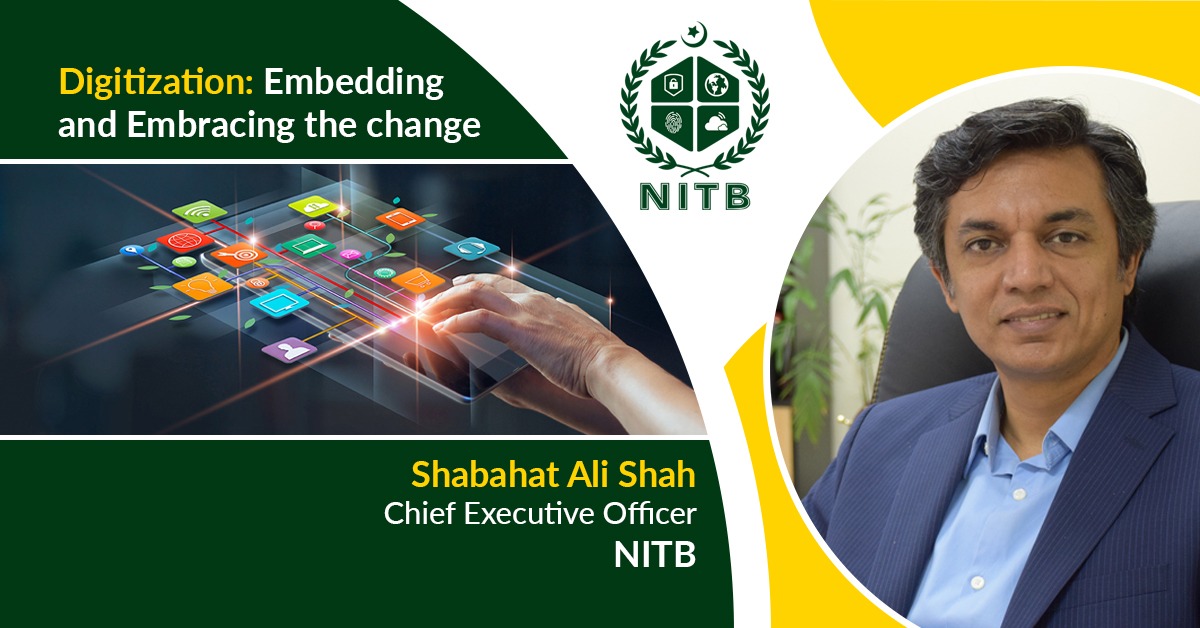

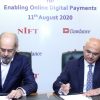
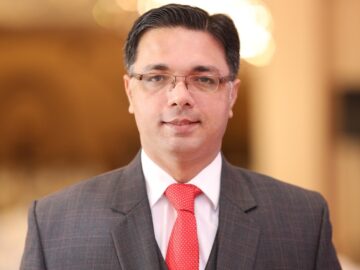


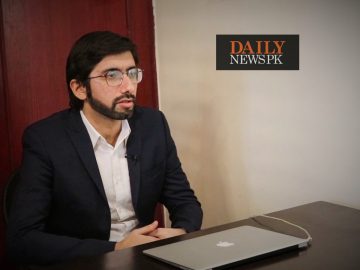

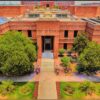


great post, very informative. I wonder why the other specialists of this sector don’t notice this. You must continue your writing. I’m sure, you’ve a huge readers’ base already!
I went over this website and I believe you have a lot of fantastic info, saved to bookmarks (:.